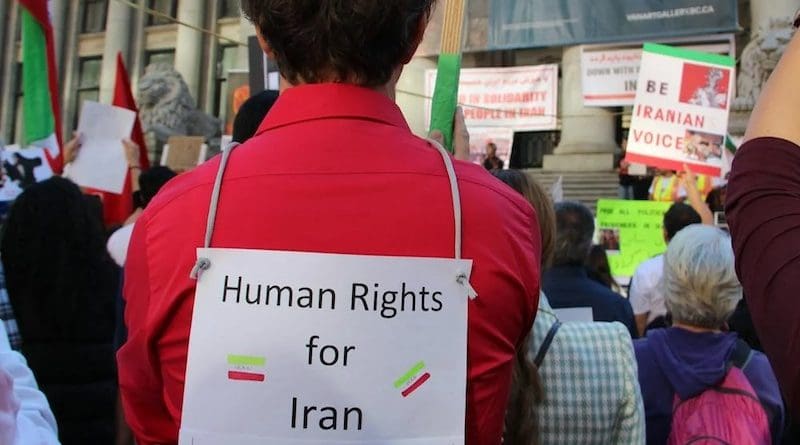Iranian Agenda For Destabilization And Insecurity In The Region And Europe – OpEd
By Hamid Enayat
According to the semi-official Mehr news agency, the trial of 104 members of the People’s Mujahedin Organization of Iran, also known as the Mujahedin-e Khalq (MEK), resumed on Tuesday, May 7, after several months of interruption. These individuals, who have been refugees in European countries for over 30 years, are accused of terrorist activities that occurred 40 years ago.
During the opening of the trial, the judge warned host countries that harboring these individuals is considered a crime under international terrorism conventions. The judge urged countries like France to reconsider their stance on hosting these accused individuals, involved in terrorist activities and crimes against humanity, and to cooperate with international organizations in accordance with the issued red notices. Additionally, the judge called on the people of Albania, as hosts of these accused, to demand their extradition to Iran from their government.
The feasibility of extraditing these “accused” to Tehran is complicated due to European laws and traditions. However, the underlying objectives of the Iranian regime in conducting this trial and potentially through the final verdict are multifaceted. Amidst ongoing internal pressure and escalating protests, Tehran’s judicial maneuvers against the MEK are aimed at countering the growing support for the MEK among the Iranian youth and launching baseless accusations as part of its smear campaign against the National Council of Resistance of Iran (NCRI) and its main component, the MEK.
In his early May speech, Iran’s Supreme Leader, Ali Khamenei, expressed significant concerns about the influence of the young Iranian generation, known as the 2000 generation, while announcing the establishment of an organization akin to an intelligence department aimed at overseeing 7 million Iranian schoolchildren. He emphasized the necessity for students to “recognize friends and foes of their country and to understand the fundamental issues necessary for their country, which will neutralize other enemy propaganda. If our young people are prepared in this field, these enemy propaganda efforts will be neutralized.” Khamenei’s fears are well-founded, as it is these young people who led the uprisings in 2019 and 2022, and who now, through thousands of resistance units, carry out poster campaigns against the wall of repression across Iran.
The regime’s plan and program primarily aim to lay the groundwork for terrorism on European soil and to prepare for potential terrorist attacks against the MEK under the pretext of defending the regime against perceived “terrorists.”
In an interview with Le Parisien, the French Minister of Defense, Mr. Sébastien Lecornu, stated that the regime’s agenda aims to create instability in the region and Europe. Is the Iranian theocracy also laying the groundwork for the assassination of opponents and considering the court’s decision as a basis for its legitimacy? It also seeks to ban or restrict the activities of the Iranian resistance in Europe.
Until 2018, the regime had always sought to camouflage its alternative. However, following a major thwarted attack by an Iranian diplomat against a gathering of the NCRI in Villepinte near Paris, the regime was forced to reveal its alternative.
Regarding the war and carnage in the region, who can ignore the bloodstained hands of this atrocious regime in the Hamas-Israel war as well as in the crises and wars over the 45 years of the regime’s existence?
In the absence of effective measures to compel the regime of the mullahs to abandon terrorism, hostage-taking, and the provocation of wars and bloodshed, what is known as the policy of appeasement has been carried out at the cost of sacrificing human rights for economic interests, making this regime increasingly bold each day. The Iranian theocracy holds the global economy hostage on the international stage and, in the Middle East and Iran, endangers the lives of millions to ensure its own survival. This amounts to giving the Iranian regime carte blanche for more terrorism and hostage-taking.


Precise analysis of the Iranian regime. Those mullahs in power in Iran should be taken a lot more seriously than they actually are.